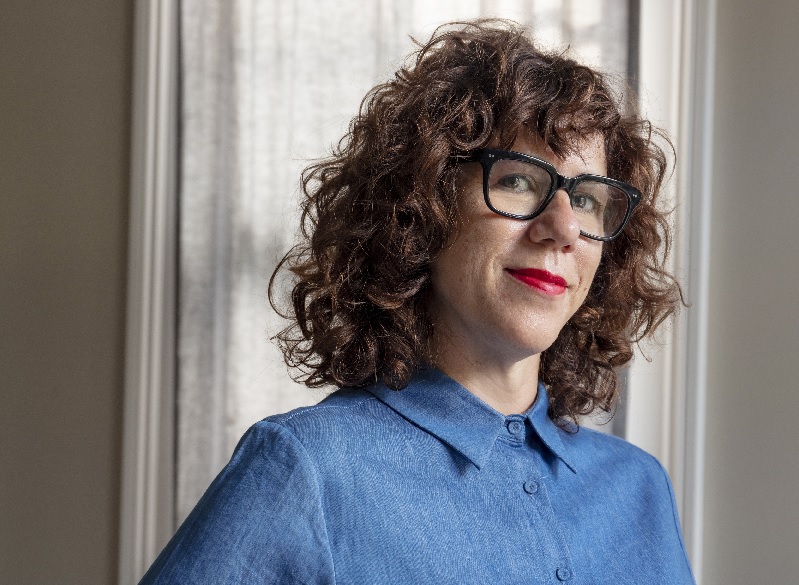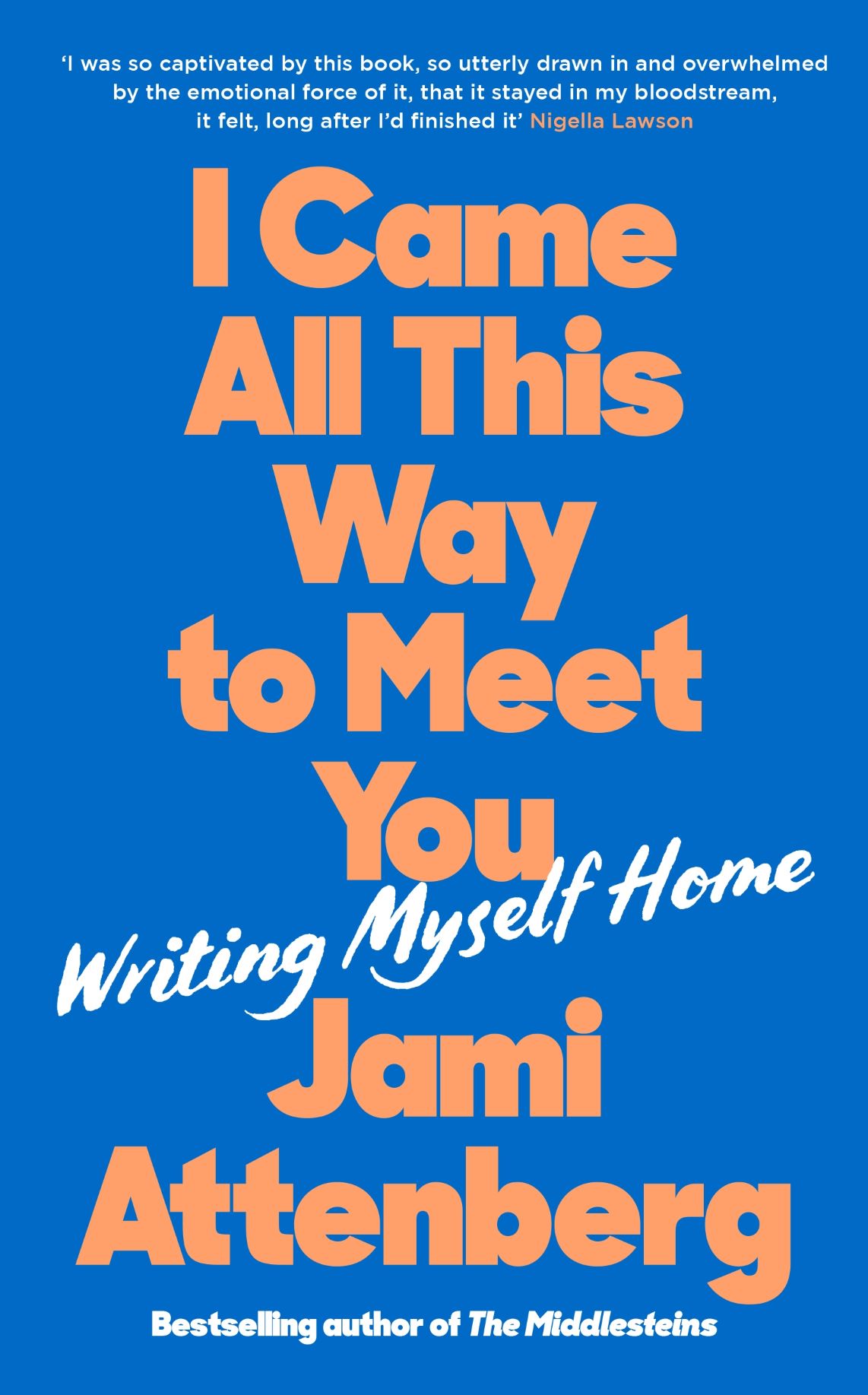We spoke to New York Times best-selling author Jami Attenberg about her memoir 'I Came All This Way to Meet You', and found out a bit more about her creative process along the way.

The book is full of vignettes: people you’ve met, jobs, parts of New York, holidays, sexual encounters, music, cooking with your mother. Do you carry a notebook or keep a diary, and are these initially where ideas begin to take on a fuller form?
I keep journals. I have stacks of finished ones sitting in my office, and I’m always spoiling myself and buying new ones when I travel. I love a pretty journal. I think they’re a great gift, too, so I always end up buying more than I might need because I end up giving them away. Like I’ll just grab one as I walk out the door to hand to a friend. As for the ones I keep, I use them both for collecting personal moments in my life, just general journaling kind of stuff to doing drafts of fiction or essays. The material contained within them tends to be extremely rough and casual, real first draft stuff. It’s where I can be as free-wheeling as I like. If it’s good or interesting enough that I want to pursue it further, I type it up into a word document, and then in this phase it becomes much cleaner and tighter, and I would say that’s when it takes on a much fuller form.
There’s a section in which you mention how chancing upon Olive Kitteridge by Elizabeth Strout helped you understand how to approach a novel that you were working on. In general, do you tend to steer clear of books similar to the one you’re writing at the time, or do you purposefully absorb yourself in books similar in style in order to inspire the work you’re doing?
No, I don’t really want to read similar kinds of things to what I’m writing. I’m afraid I’ll lean on it too much, or it will influence me too much. I just want to have my own take on matters. If things have too strong a voice it actually throws me off because I’ll hear the other voice in my head rather than my own. I do like to read things that might help from a historical or research perspective. Or I might sometimes read something to see how it’s done. Like if I’m struggling with a scene that has a lot of action in it, I’ll read a book where a lot of things happen, if that makes sense. And I can learn in that way. But I don’t want to read anything that feels like what I’m working on. The aim is to create something wholly unique. I actually like to read a lot of poetry when I’m writing – I think that’s got the best influence of all on me. The elegance and simplicity of the storytelling, I find it helps to keep me focused.
Although you have written personal essays before, how was your experience of writing a memoir? Did your process differ from writing fiction? If so, how?
Well, it’s not made up, for one thing! Although I have altered some details to protect people’s identities or compressed certain moments in time. My process didn’t differ much in terms of getting the words down. I handwrote in the morning and typed up pages in the afternoon, or sometimes I typed directly into my phone. The editing process was different though. I usually write a draft that’s pretty close to the length it’s going to be, and I might add more text in here and there as I go through the editing process. With this I wrote long and well over what I wanted the length to be, and I ended up cutting about twenty thousand words with my editor’s help. I just wanted to get it all down on the page and see what was worth using. I didn’t have necessarily a clear vision from the start about the exact way I was going to carve the material. Also not all of my life is particularly interesting, so I needed another set of eyes on it to tell me what worked and what didn’t.
A chapter from I Came All This Way to Meet You is loosely based on a drink you had with another writer hoping to pick your brains about why you’d had success with a recent book. Which question are you asked most often by writers, and what do you think is the most common misconception of being a writer?
I think a lot of writers want to know if they’ve got what it takes to make it. But really I think what they want or need to hear is simply, “Keep going.” And I would tell everyone to keep going no matter what, because writing is such a gift and a pleasure and can be so necessary to your emotional health and well-being too.
A common misconception is that it isn’t a real job. But it certainly is!

A theme throughout the memoir is one of persistence. Of bouncing back. If you could offer a single bit of guidance to a writer who hasn’t been able to find someone to publish their work, what would it be?
I think you can’t get into this career because you want money or fame or anything like that. You really have to pursue your work because you love it, and you crave to tell the stories you are telling. I used to think we were all fighting for the tiniest piece of an extremely small pie, but later I realized there is no pie. It’s just all about the work, and making our art. So I can’t say to you, do this or do that, and you’ll get published. I can only tell you that if you're writing what you want to be writing, and working hard at it, there will be a fulfilment that comes out of that. And there are plenty of ways to put your work out there if that’s important to you. I self-published zines and had an online journal for years before I got published in magazines and newspapers. I really found my voice in that way. I just think you have to stick with it because you love it, and good things will come out of that, in one way or another.
I Came All This Way to Meet You: Writing Myself Home by Jami Attenberg is available now
Jami Attenberg is the New York Times best-selling author of seven books of fiction, including The Middlesteins and All This Could Be Yours. She has contributed essays to the New York Times Magazine, the Wall Street Journal, the Sunday Times, and the Guardian, among other publications. She lives in New Orleans.
1000wordsofsummer.substack.com
jamiattenberg.com
Twitter: @jamiattenberg
!